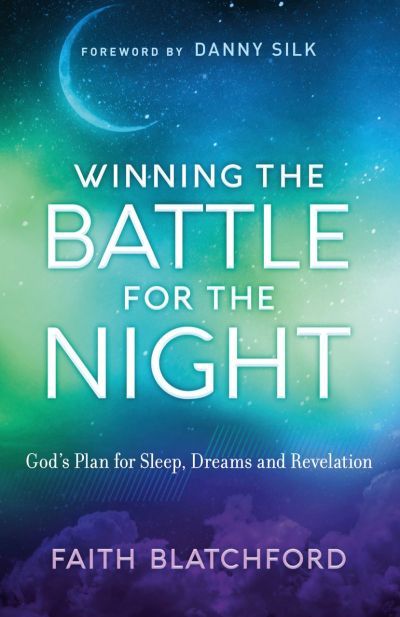Want to Hear From God in Dreams? Get More Sleep, Author Says
Blatchford told CP, "What if [Lincoln] had actually believed that God still warned people in dreams like God warned Joseph?" referring to the story in Matthew 2 where He instructed him in a dream to take Mary and Jesus to Egypt in light of King Herod's plot to kill him.
Yet because Lincoln wrote off the dream as "only a dream" he disregarded the advice of Lamon who reportedly pleaded with the president to avoid going outside as much as possible, especially events like the theater.

Lincoln was inaugurated on March 4, 1861, and the American Civil War ended on April 9, 1865. John Wilkes Booth murdered Lincoln a few days later on April 14 at Ford's Theater during a showing of the three-act play "Our American Cousin."
"Our country today might be in a totally different atmosphere, racially, if Abraham had lived," Blatchford said, noting that a major theme in Lincoln's second inaugural address was "binding the wounds" of the nation. Lincoln's vision for Reconstruction was not realized under his successors and America's racial wounds remain.
"So I think this mindset that people have that 'God doesn't [speak in dreams], that it's scary, it's heretical, it's not safe...what we've done is that we've muzzled God but we have not dealt with the fact that if there is a spirit world and that we are not just mind and body, but we're mind, body, and spirit," Blatchford said.
And when Christians cut God off with that kind of mindset they are nevertheless still vulnerable to nightmares; the word nightmare actually means "night demon," she noted.
In chapter 8, "The Enemy's Tactics," Blatchford explores the three strategies of the devil to disturb sleep and equips readers to engage in spiritual warfare, teaching them how to pray and stand against his schemes.
But contrary to popular sentiment, the devil does not own the nighttime nor the darkness, Blatchford said, highlighting another untruth some Christians and others believe. The phrase "Prince of Darkness," a popular name for the devil, is not even scriptural. Bernard of Clairveaux first used it in a sermon in the 13th century and it was later picked up in John Milton's Paradise Lost, and was later popularized in culture, she said.
"God created from the darkness, He owns it because He named it. He gave Moses authority to release darkness on the Egyptians," she said.
The secular world is also realizing the power and value of sleep, even though they are leaving God out of the picture.
Blatchford mentioned that several months ago in the Style section of The New York Times, an above-the-fold headline said: "Sleep: Is the New Status Symbol."
Silicon Valley business entrepreneurs see the sleep space as a $32 billion market, and this is not about pillows and mattresses, but a burgeoning model of sleep products. The insurance company Aetna is reportedly now giving their employees $500 bonuses if they can prove, through Fitbit or a similar sleep hour-counting device, that they have had 20 days of seven hours of sleep or more. And the RAND corporation has done a study showing that the business loss cost businesses $411 billion, the author explains.
Last year, Ariana Huffington released her book The Sleep Revolution, which details her physical breakdown due to her being a workaholic.
Blatchford expressed her desire to come alongside all of this writing and research on sleep but to also include "the God-factor."
"So, this whole shift in focus from the badge of honor that 'I function with four hours or less of sleep at night' to the place where now people are paid extra for sleeping more," presents an opportunity for the Church to speak about this prophetically.
"I think God has times and seasons, to accomplish His purposes and this is almost a kairos moment," in history, Blatchford said.
Blatchford, who is an ordained pastoral counselor and is based in Redding, California, with Bethel Church, conducts surveys at teaching seminars about this very subject where she asks those in attendance if they have ever heard messages or sermons from the pulpit on sleep.
"Ninety-nine percent of the people say 'no,'" Blatchford said.
"The world has run out of answers and so we need innovative ideas, we need inspiration, and the source of that, I believe, is going to come through this resurgence of embracing the night and sleep."
What was born out of her desire to have more dreams has turned out to be something she believes is on "God's agenda" to reclaim in this season.
Blatchford reiterated that she hopes her book ministers to those who feel hopeless, particularly about their sleep problems, and the anxiety issues that stem from it.
"When we start talking about the statistics — the 70 million who are insomniacs and the 130 million who are workaholics and work three jobs — the tendency for people in those numbers is to feel condemned, shamed, and trapped.
"And it is interesting when you read the story of Job, he talks about lying on his bed, not able to sleep. He had insomnia. He had all kinds of problems — financial, physical, family — the things that keep people awake," she said.
"No matter what one has experienced or is experiencing, He is the God of hope," Blatchford said. "The end of [Job's] story was restoration. And that if God is the one who gives us sleep, then He is the one who is able to bring healing to all the negative things that have happened in our body because of lack of sleep." .





















